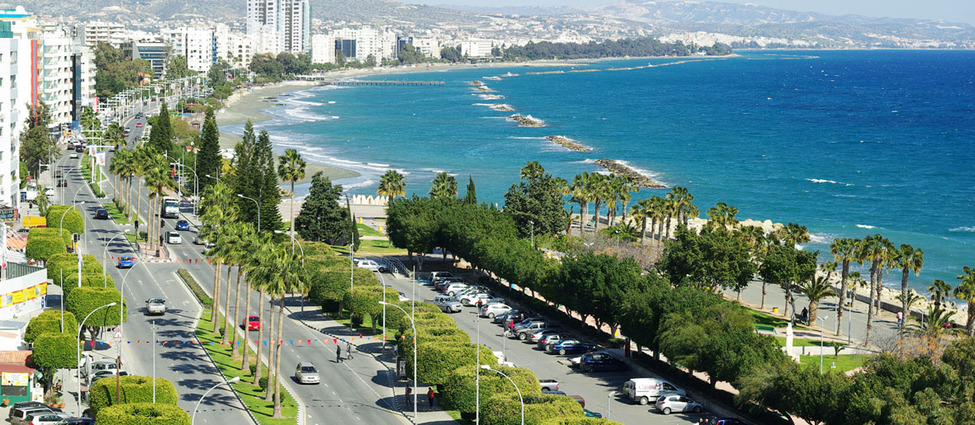

News
Cyprus Space Centre drives innovation with NASA
Cyprus advanced its space ambitions as the Cyprus Space Research and Innovation Centre (C-SpaRC) recently showcased key developments in its space programme.
The Cyprus Space Exploration Organisation (CSEO) described C-SpaRC as a multi-million-euro national initiative funded by the Research and Innovation Foundation (RIF) and backed by NASA TRISH and NASA Marshall, calling it a transformative step for Cyprus’ space sector.
As C-SpaRC presented its progress to Chief Scientist Demetris Skourides, the Deputy Minister of Research, Innovation and Digital Policy Nicodemos Damianou, and the Permanent Secretary of the Ministry were also in attendance, signalling strong governmental support for C-SpaRC and the expanding Cypriot space ecosystem.
A core highlight of the presentation was Cyprus’ first domestically developed satellite, which CSEO committed back in June, during the inauguration of C-SpaRC, to deliver this key asset within 111 weeks.
Using advanced Selective Laser Melting (SLM) 3D metal printing technology to produce intricate satellite components, CSEO said this innovative process enables manufacturing with aluminium, titanium, steel, and platinum at scales rarely available across Europe.
This capability, according to the organisation, opens new doors for Cypriot companies in smallsat manufacturing and related high-value sectors.
With NASA and COSPAR support, the satellite is set for launch in 2026, depending on launch service availability.
C-SpaRC’s advanced infrastructure includes Cyprus’ only SLM metal printer, one of the few with such capabilities in Europe. CSEO said that this equipment will soon be accessible to members of the Cyprus Space Cluster, allowing greater collaboration within the space ecosystem.
This open-access approach, it added, helps Cyprus move closer to full European Space Agency (ESA) membership by integrating high-end resources that boost global competitiveness.
The presentation also revealed strides in space weather forecasting, with teams from the Sodankylä Geophysical Observatory (SGO) and CYENS Centre of Excellence showcasing AI-driven Space Weather (SWx).
These models predict solar flares from the Sun’s active regions, increasing preparation time. Furthermore, their method identifies regions with a low probability of flaring.
This improved accuracy stems from novel statistical methods and predictive AI modelling. These enhance our ability to prepare for and mitigate the impact of space weather events, significantly improving global Space Situational Awareness (SSA) – the comprehensive understanding of the space environment – and protecting vital infrastructure.
Space health research also features prominently in C-SpaRC’s work. Partnering with NASA TRISH and the Cyprus Institute of Neurology and Genetics (CING), with support from Aretaeion Hospital, C-SpaRC is investigating the biological impacts of space weather on astronauts.
This collaboration uses NASA TRISH’s organ-on-a-chip technology to study the effects of cosmic radiation, microgravity, and other spaceflight stressors on human health, particularly as part of preparations for NASA’s Artemis lunar missions.
CING’s Bioinformatics Department (C-BIG) has reportedly developed computational tools based on RNA sequencing data from human-derived cardiomyocytes, designed to assess spaceflight’s impacts on cardiovascular function, oxidative stress, and redox signalling.
The organisation said this research is essential for identifying drug candidates that could help mitigate cardiovascular risks faced by astronauts.
Findings from this space health research also offer valuable insights for healthcare on Earth. CSEO pointed out that the unique challenges of spaceflight, such as elevated radiation levels and oxidative stress, generate data that can help address similar health risks here, with potential benefits in treating cardiovascular issues, immune deficiencies, and cancer.
Recognised for its contributions to innovation, CSEO has won multiple awards at NASA’s Space Apps Challenge, affirming Cypriot expertise in science and technology.
The organisation reports it has led or taken part in 13 funded Research, Technology Development, and Innovation (RTDI) projects with a combined budget exceeding €11 million, acting as coordinator for 6 of these projects (€5 million budget share).
Among these is the IN-TIME project, which was recently featured in The Washington Post for developing tools to date Martian sediment samples, underlining Cyprus’ dedication to world-class research.